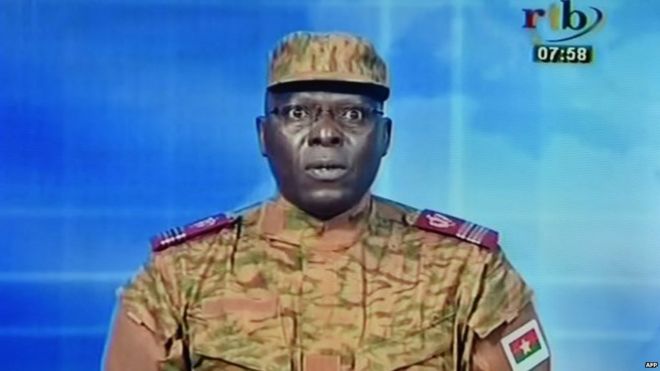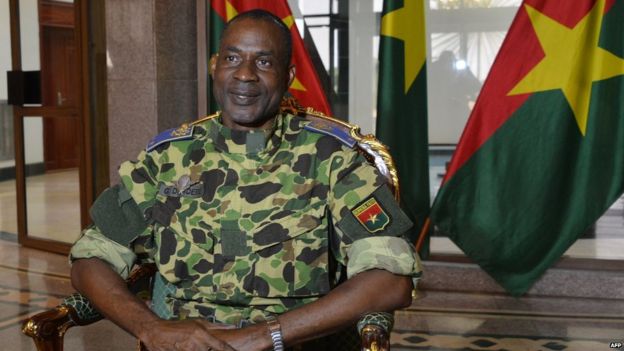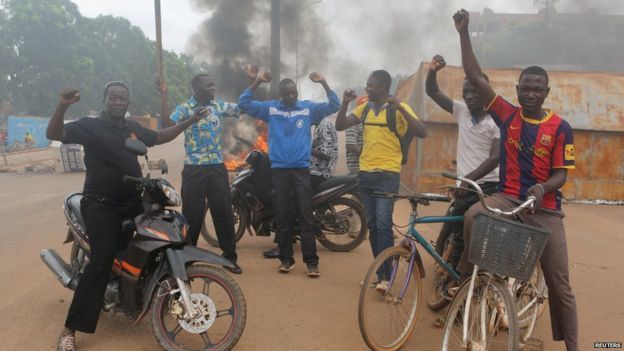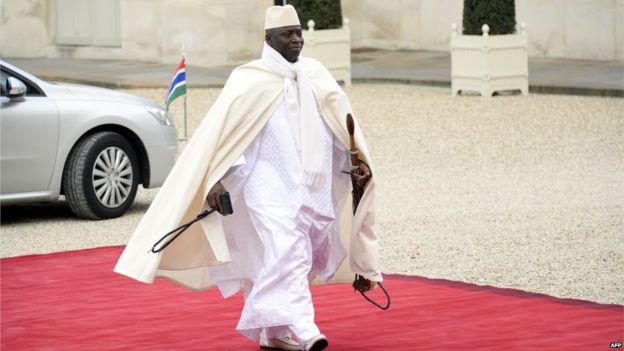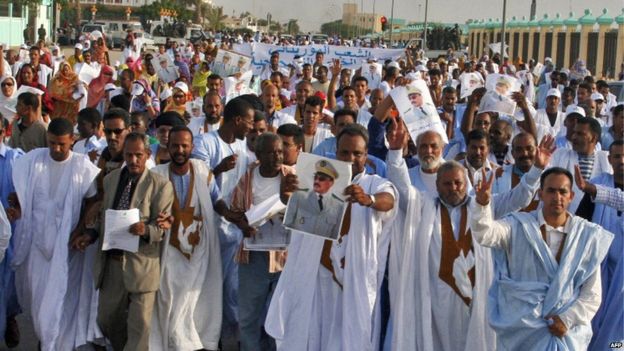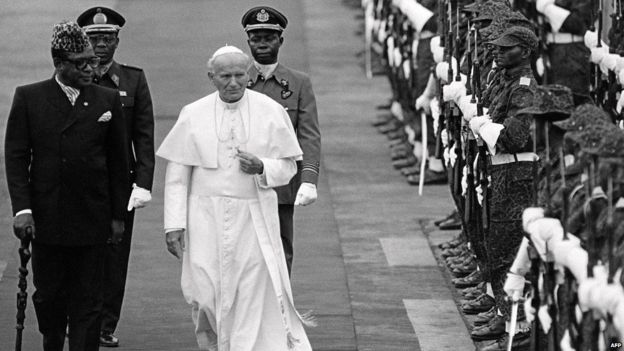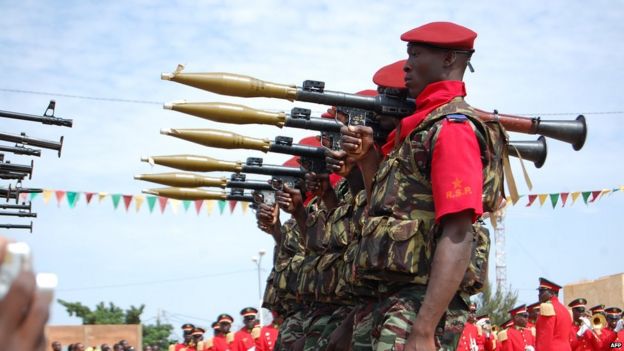Burkina Faso coup: Why presidential guards seize power
The leaders of the coup in Burkina Faso were from the presidential guard. So what makes officers who are meant to protect democratically elected presidents be the ones who seize power unconstitutionally?
Perhaps it is the proximity to the leaders that makes it easier.
Constantly walking two steps behind the leader gives the unit's leaders a closer look at what happens behind closed doors in the heart of power and therefore, potentially, the lust for it.
The man behind Ouagadougou's latest coup is General Gilbert Diendere, former chief-of-staff to ex-President Blaise Compaore.
The speaker of parliament Cheriff Sy said in a statement that several ministers were holding a meeting on Wednesday when presidential guards "burst into the cabinet room and kidnapped" the interim president, the prime minister and others.
This is just the latest in a long line of coups led by presidential guards in Africa.
Just two months ago the Gambian government accused the former head of the presidential guard, Lieutenant-Colonel Lamin Sanneh, of leading a small failed coup in an attempt to oust President Yahya Jammeh.
n Mauritania, the country's first democratically elected President, Sidi Mohamed Ould Cheikh Abdallahi, was deposed in a 2008 coup led by the former chief of his own official guard.
General Mohamed Abdel Aziz carried out this attack on democracy after four generals, including himself, were dismissed by the president.
I could go on but I think you get the point, although presidential guard units do not have a monopoly on coups - in Africa or elsewhere in the world.
Presidential guards are normally highly skilled military officers, often trained by western countries in order to protect the state.
Unfortunately, all too often they use their skills to satisfy their desire to occupy the highest office in the land.
And in many cases they did not care about ordinary citizens.
The ones I have seen here in Africa, and in Saddam Hussein's Iraq, tended to wear their beret side-ways, like the world famous Che Guevara photograph.
I don't know whether it is a fashion statement or an official requirement but it certainly makes them look like they own the country, particularly while relations between themselves and their principals are still rosy.
Saddam's were called the Republican Guard and they reported directly to him.
Some despots like to have several different security units - so they compete with each other and if one group wants to seize power, there will be another to tackle them.
In Zaire (now Democratic Republic of Congo), Mobutu Sese Seko deliberately kept the army weak, while looking after the presidential guard.
As elsewhere, they had separate chains of command to the regular army, answering directly to the president.
David Zounmenou, who follows these matters closely and is a Senior Research Fellow at South Africa's Institute for Security Studies, told me that presidential guards are "spoilt - more than the army".
"They have all the resources they need, which helps the president to buy their loyalty."
He adds that "post-colonial Africa has seen the militarisation of the army and conversely the politicisation of the military because of legitimacy deficiency of leaders".
In Burkina Faso, the presidential guard which seized power seems to have been worried that it would be disbanded following the elections organised after Mr Compaore, with whom they were so closely identified, was forced from power.
Rather than lose their privileges, they decided to step in themselves.
But Africa's leaders will be determined to stop them from getting away with it.
They have all unanimously declared that the time for military coups is over.

